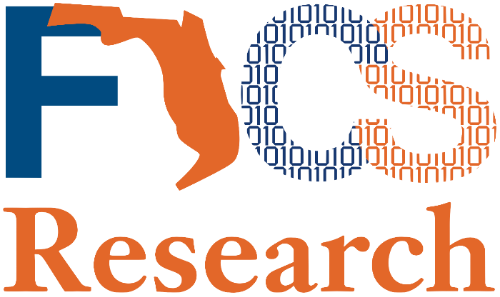


Message from the Director:
Greetings from the Florida Institute of Cybersecurity (FICS) Research. As we approach the end of 2023, I wanted to take the opportunity to reflect upon another year of success and share some of the great ongoing work within the institute.
I first want to extend a warm welcome to Dr. Christopher “Chrispy” Petersen and Dr. Yu Wang, both in the Department of Mechanical and Aerospace Engineering (MAE), and Cheryl Resch, our cybersecurity-focused instructional assistant professor in the Department of Computer and Information Science and Engineering (CISE), all of whom became members of FICS Research this past year. They have exciting research and teaching agendas that extend and broaden the scope of the institute’s world-leading cybersecurity.
There are many successes to share this year. Dr. Juan Gilbert, chair of the CISE Department, receiving the National Medal of Technology and Innovation from President Biden for his work on trustworthy election technologies to strengthen democracy. Dr. Mark Tehranipoor, chair of the Department of Electrical and Computer Engineering (ECE), being named to the National Academy of Inventors and receiving the Aristotle Award from the Semiconductor Research Corporation for his deep commitment to educating the next generation of students in hardware security. Other major awards including Dr. Prabhat Mishra (CISE) being named a Fellow of the American Association for the Advancement of Science. FICS Research faculty continue to be leaders in the academic research community. Dr. Eakta Jain (CISE) became Chair-Elect of ACM SIGGRAPH and leadership by multiple faculty at major academic conferences and journals, while policy is shaped by senior members in the institute such as Dr. Bonnie Dorr’s (CISE) membership in the DARPA ISAT study group, Dr. Patrick Traynor’s (CISE) involvement in the US-ACM Technology Policy Committee, and my membership in the CRA Computing Community Consortium.
New projects were funded through a variety of new initiatives, such as a major research instrumentation grant from the National Science Foundation to Dr. Navid Asadi in the Department of Electrical and Computer Engineering (ECE) and Dr. Mark Tehranipoor, chair of ECE, to allow for innovative research in 3D imaging for chip security. Dr. Farimah Farahmandi, associate director of FICS Research and faculty within ECE, also received an instrumentation grant from the Air Force Office of Scientific Research to verify the security of system-on-chip architectures. The breadth and depth of research within FICS Research continues to be recognized through top-tier conference and journal publications in computer security, machine learning, natural language processing, hardware and systems, networking, and beyond.
We’re excited to be in our home in the Malachowsky Hall for Data Science and Information Technology where we anticipate the opportunity for further collaboration and remarkable new lab space to keep us on the cutting edge of research. I am grateful to you for your support and commitment to the success of FICS Research and look forward to seeing how we will continue to shape the present and future of research that makes our nation and society safer and stronger.
Sincerely,
Kevin Butler (he/him)
Professor, Computer and Information Science and Engineering
Director, Florida Institute for Cybersecurity (FICS) Research
Director, NSF Center for Privacy and Security of Marginalized and Vulnerable Populations (PRISM)
University Term Professor

Congratulations to all the FICS students graduating this Fall Semester. Featured here are Dr. Tao Zhang and Dr. Md Rafid Muttaki with their advisor FICS Associate Director Dr. Farhimah Farahmandi.

Are you planning on attending the NDSS 2024 Symposium in San Diego? Students are encouraged to apply for the travel grant, The deadline for applications is December 29th. More information can be found here.

Congratulations to Wenxuan Bao, and FICS faculty member Dr. Vincent Bindschaedler on having their paper “DP- Mix: Mixup-based Data Augmentation for Differentially Private Learning” at the recent NeurIPS conference in New Orleans. This paper investigates why naive applications of multi-sample data augmentation techniques, such as mixup, fail to achieve good performance and proposes two novel data augmentation techniques specifically designed for the constraints of differentially private learning. This research is in collaboration with NEC Labs America.
More information on the research can be found here.

Recently Dr. Kevin Butler had the opportunity to moderate a panel at the Annual Computer Security Applications Conference (ACSAC) on security and accessibility for blind and low-vision users.

Save the date, FICS conference will be held on April 9-10, 2024
